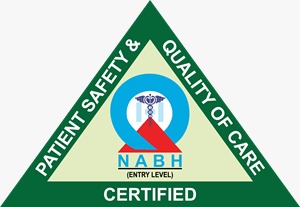About the Department
Departmental History, Development and Major contributions of the Department
The Department of Pharmacology was established in 1967 with an aim to carry out research on interactions between respiratory organs and regulatory substances including drugs. Some of the areas of initial research were smooth muscle pharmacology, visceral epithelial transport of water and electrolyte and mechanisms of osmoregulation. One of the most significant findings was the characterization of a new regulatory peptide, pneumadin, found in the mammalian lung which appeared to be crucial in water and electrolyte distrurbances in lung disease. This original piece of work was recognized at the highest international level. Current interests include teaching and research in basic and clinical pharmacology in respiratory diseases and allied sciences, with additional emphasis on areas like immunopharmacology, neuropharmacology and stress research. Emotional and environmental stressors are important etiological factors for cardiorespiratory disorders and recent experiments have shown that nitric oxide (NO) plays an important role in stress susceptibility and adaptation and may thus be a target molecule for drug development in stress related disorders. Studies undertaken in the area of pulmonary TB have indicated that NO could be an important marker of the association between smoking and TB and fort the assessment of efficacy of anti-TB drug therapy. Another important research contribution has been the demonstration of novel mechanisms of action for bronchodilator methylxanthines like theophylline. Oxidative stress has been shown as a crucial modulator of efficacy and safety of this potent and pharmacoeconomically viable agent. Other areas of departmental research interest are pharmacoepidemiology and rational drug usage. The Clinical Pharmacology Unit was started in 2000 and clinical trials as well as pharmacokinetic studies are being carried out. The Department was also involved in pharmacovigilance activities as part of the National Pharmacovigilance Programme for adverse drug reaction monitoring and other safety pharmacology studies. Most recently, innovative translational research has been carried out in the area of respiratory pharmacology and toxicology with an aim to integrate traditional and modern medicinal concepts. The department has also been actively involved in academia-industry interactions and has several research collaborations with academic institutions, research organizations and the pharmaceutical industry – all in the interest of new drug development. The department, with the active support of the institute, has organized several national and international level scientific meetings at the VPCI in different aspects of pharmacology and toxicology which has resulted in dissemination of knowledge and expertise to medical researchers and professionals in the area. It is planned to develop the department into a state of the art facility for teaching, research and training centre in Clinical Pharmacology and Toxicology.












.png)
.png)


